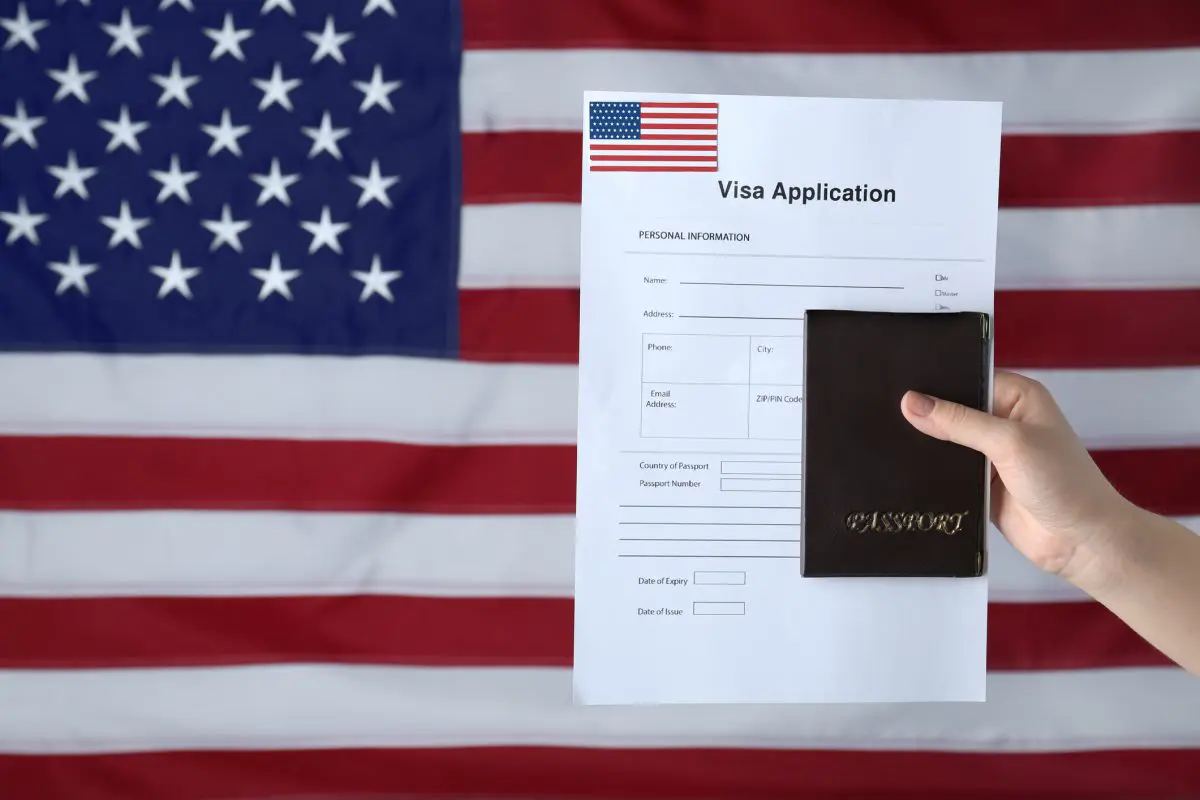Us Immigrant Visas
National Interest Waiver; Everything You Should Know in Simple Words
December 22, 2024
7 min read
Learn how to apply for a green card through consular processing in Orange, CA: a fast and convenient way to become a permanent resident in the U.S.
.webp&w=3840&q=75)
Many people dream of finding a home and a purpose in the United States, especially if they have a family member, an employer, or a special category that can sponsor them for an immigrant visa. Do you also want to enjoy the rights and benefits of being a lawful permanent resident? If so, you should learn about consular processing, one of the methods to apply for a green card in the U.S. Consular processing refers to the procedure of obtaining an immigrant visa at a U.S. diplomatic mission overseas, and subsequently entering the U.S. as a lawful permanent resident. It is accessible for individuals who are outside the U.S. and have an approved immigrant petition and an allocated visa number or even for individuals who are already in the U.S. but opt to apply overseas for various reasons. This article aims to provide a comprehensive overview of consular processing. It will cover the eligibility criteria, the steps and requirements, and the potential benefits and challenges of this method to facilitate your transition to the U.S. and avoid common pitfalls. Our expert immigration lawyer will help you get a U.S. green card, no matter where you are. The Law Office of Tuan Le in Orange, CA, offers a 30-minute free legal consultation to anyone who wants to apply for consular processing.Call us today at (714) 877-5840 or fill out the form to schedule your appointment fill out the form to schedule your appointment.

The initial step of consular processing is to identify your immigration category, which means the type of green card that you meet the requirements for. You can then start your green card process by filing a green card application with the USCIS green card office. Here are the different types of green cards:
A relative who is a U.S. citizen or permanent resident sponsors you for a family-based green card.
A U.S. employer sponsors you for an EB1 visa, EB2 visa, or EB3 visa, or you are in a special category of workers, such as EB5 visa investors, religious workers, or physicians who qualify for EB2 NIW or EB1A green card.
You win the DV lottery 2024, a yearly diversity visa program that gives DV green cards to people from countries with low rates of immigration to the U.S.
You get refugee or asylum status, or you are a survivor of human trafficking, crime, or abuse. You can then apply for a humanitarian green card or a NIW green card based on your national interest waiver.
You are part of a specific group of people who have a close connection with the U.S., such as former U.S. government employees, international organization employees, or Iraqi or Afghan translators. You can then apply for a special immigrant green card. Also, if you already have a green card, you may need to renew it periodically by renewing a green card, renewing a permanent resident card.
After determining your basis to immigrate, the next step to help your relative or employer get a U.S. green card is to file the Immigration Petition. You have to complete a certain form and send it to USCIS with the necessary documents and fees. This form shows your relationship or employment to the person who wants to live in the U.S. forever. There are various types of immigrant petitions, based on the category and preference of the person you are supporting. These are some of them:
If you are a U.S. citizen or a lawful permanent resident, and you want your relatives to join you in the U.S., you have to fill out Form I-130 ( Petition for Alien Relative) and show evidence of your kinship. Your relatives can belong to one of two categories of family-based immigrants: immediate relatives (husbands, wives, parents, or children under 21 of U.S. citizens) or preference relatives (single or married children, brothers, sisters, or spouses and children of lawful permanent residents).
If you are a U.S. employer or worker, and you want to work or hire in the U.S. depending on your abilities, education, or investment, you have to submit Form I-140 (Petition for Alien Workers) and demonstrate your credentials or the employment offer. Your employment-based immigrants can fall into one of five preference groups: priority workers, professionals with higher degrees or outstanding skills, skilled workers or professionals, special immigrants, and investors or business owners.
If you belong to certain groups of people who have a special connection with the U.S. or are eligible for humanitarian protection, you have to complete Form I-360, (Petition for Amerasian, Widow(er), or Special Immigrant) and satisfy the particular requirements for your category. Some types of special immigrants are religious workers, translators, international organization workers, Afghan or Iraqi nationals, and mistreated spouses or children of U.S. citizens or lawful permanent residents.
If you are a person who needs protection or assistance from calamities, persecution, critical medical conditions, or other emergencies,you do not have to submit a petition, but you have to seek a particular program or benefit that matches your situation. Some types of humanitarian programs are refugee or asylum status, temporary protected status, humanitarian parole, and deferred action for childhood arrivals.
USCIS will inform the petitioner of Its decision. If it is negative, it will also explain the grounds for rejection. The petitioner can still appeal the decision with the help of our immigration lawyers in Orange County at the Law Office of Tuan Le. Once the petition is accepted and USCIS Lets you know, it forwards the petition to the Department of States National Visa Center (NVC). Then it will stay there until the petitioner gets a visa number.
The petitioner and beneficiary will get a notification from the NVC when the visa petition and the visa number are ready. This agency collects the service fee for visa applications and other documents that support them. The NVC will also inform when the fee bills for the immigrant visa and the other details have to be paid.
When the visa is ready or the priority date is up to date, the consular office will schedule an interview for you. The consular office will finish the case processing and determine if the beneficiary is eligible for an immigrant visa. After that, you should prepare for the interview by reviewing the [interview guidelines] and bringing the [required documents].
You must tell the National Visa Center if you move, get married or divorced, or turn 21 years old since these changes may change the visa availability or the beneficiary's qualifications.
The beneficiary will get an information packet (visa packet) from a consular officer along with the immigrant visa. This packet must not be opened. The individual has to pay the USCIS immigrant fee to get the Green Card. Moreover, the fee should be paid after getting the visa packet, but before coming to the US. Then, the immigrant has to give the visa packet to the US Customs and Border Protection (CBP) officer at the entry point in the US. After that, this officer will check you and decide if you can become a permanent resident in the US. This will be the final step to get permanent resident status. Hire the best immigration attorney to guide you through every step of your consular processing application. Call to schedule an appointment.
You have to make the choice, of whether to pursue consular processing - If you are presently in the United States, you may have another option, which is applying for an adjustment of status. You should have a thorough conversation with your family, your lawyer, and yourself. To help you decide if this path is suitable for you, here are the most frequent pros and cons related to consular processing.
One of the main reasons why many people choose consular processing over adjustment of status is the speed of the process. Consular processing is usually faster than adjustment of status, which is the other option for applying for a green card from inside the United States. The consular process takes an average of 5 to 13 months, while the Adjustment of Status petition can take one or two years for the United States Citizenship and Immigration Services (USCIS) to decide.
Consular processing also has the advantage of letting the applicant apply from their home country, without having to make a trip to the United States. As a result, it makes the applicant feel more confident and comfortable, as they have the details of the interview, and they can count on the consular officers to know the local customs better than the USCIS officers in the U.S. Moreover, it can prevent confusion or trouble in explaining, for example, technicalities or certain papers to the intended immigrants.
The cost of an Adjustment of Status application remains $1,140 for most applicants, with an additional $85 for the biometrics fee. The consular application fee depends on the visa type, but for family-based immigrants, it is around$ 1,200,which covers an immigrant visa petition. Therefore, consular processing is cheaper than adjustment of status.
You have to attend the consular processing interviews, and you are not allowed to bring your immigration attorney with you during the interview.
Consular officers have the final say on your case, and you cannot appeal their Decisions. This also means that your approved immigrant visa petition may be reviewed again or revoked by them. Moreover, consular processing makes it harder for you to contact the consular officials, compared to AOS applicants who can communicate with USCIS officials more easily.
The applicant has to take a medical test and submit police records from every country where they have stayed for over six months since they were 16.
The location of an intended immigrant may expose him or her to risks or extra expenses for traveling from his or her home to a U.S. consulate.
The consular officer should tell you why your application is denied and the legal basis for it. Also, your application may be delayed if the consular officer requires more details or papers from you, or if your application is in administrative processing, which is a security clearance that can last for a few weeks or months.
You have to bring all your documents to the interview. Also, you need to Pass security and fingerprint scans before the interview. After that, you have to answer questions from the officer about yourself, your category, your plans, and your sponsor. Remember to be honest, consistent, and ready. Pay the visa fee if needed and give your passport for stamping if approved. After getting a visa packet with your visa and documents, Don't open it until you reach the U.S. Then, follow the officers instructions on how to pay the USCIS fee, check your visa status, and contact the consulate if needed.
Consular processing is a viable option for many people who want to get a United States permanent resident card, which is also called green card, and become permanent residents in the U.S. It has several advantages, such as faster processing time, lower fees, and more comfort and confidence for the applicant. However, it also has some drawbacks, such as mandatory in-person interviews, non-reviewability of consular decisions, and health and criminal screenings. Therefore, before choosing this method, you should weigh the pros and cons carefully and consult with an expert immigration lawyer. The Law Office of Tuan Le in Orange, CA, can help you with your consular processing application and guide you through the process step by step. Call us now for a free 30-minute consultation.
Related Articles

December 22, 2024
7 min read

August 30, 2024
9 min read
.webp&w=3840&q=75)
June 27, 2024
9 min read
Need guidance from an experienced immigration attorney?
Mr. Le has granted you a 30-minute consultation session.